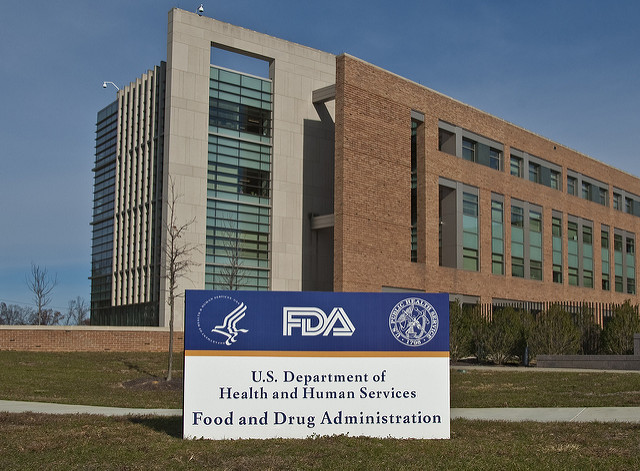
Some readers may wonder why patients need access to the FDA’s FAERS database of adverse events for prescription drugs, and why the FDA deserves accolades for finally providing this access. This is not a trivial question. There are several factors to consider, not the least of which is the current estimations of the causes of death by conventional medicine. According to some estimates, including that found in the study called Death by Medicine co-authored by Gary Null and others, doctor-caused deaths are ahead of both cancer and heart disease, claiming 800,000 lives EACH YEAR. Other studies in the JAMA and BMJ have come to similar conclusions.
There is no other profession that can cause that many deaths and suffer no consequences. Consequences that may befall another profession might include investigations, both internal and governmental, suspensions of practitioners, and other problems for practitioners. With conventional medicine, these deaths are simply considered par for the course.
Unfortunately, many of the aforementioned deaths are caused by prescription medications, both as a result of improper prescription, improper taking, and correct prescription drug use. A friend of mine recently suffered an adverse event from a blood pressure medication. However, the adverse event is not the main issue.
The main issue is that doctors, specialists, and other medical practitioners, in general, downplay the side effects of medications. What’s worse, when a patient presents with an adverse event, including one that is clearly in the FAERS database, and is life threatening, the doctor will almost invariably ignore, counter, or laugh at the patient and their conjecture about their medication and what it may be doing to their body. They will not even entertain the possibility, in many cases, that it could be a reaction caused by the drug they have prescribed.

This can very often lead to hospitalization, and even death, as many adverse events, if unrecognized and untreated, will lead to death. Blood pressure medications are a good example. Some of these medications can themselves actually cause the very heart attacks they are meant to prevent.
So, what is at stake here is patient’s lives. All patients should be aware of and regularly consult the newly unveiled and created publicly accessible FAERS database provided by the FDA. Up until November of last year (2017), if you were a patient, you had zero access to this database. In order to even get information on a drug or event, you had to submit a Freedom Of Information Act (FOIA) request, wait six months, and then be provided with raw uncollated data related to one particular drug and one side effect. If you thought you were having a reaction to a medication, you were completely reliant upon your physician to recognize and treat the reaction. However, as discussed above, this does not usually happen. And if you are suffering a life-threatening reaction, your doctor often won’t recognize it either, until it has put you in the hospital.
As an example, if you take a look in the database for several of the beta-blocker medications, and low hemoglobin or erythropenia (low red blood cell count), all of the individuals who had these reactions ended up hospitalized, and many died. However, if you are a patient on a beta blocker, and your doctor does a blood test which shows either of these two side-effects, you will be prescribed an iron pill, and may be told that you must be suffering from internal bleeding. A battery of tests, including a colonoscopy and endoscopy (both extremely unpleasant tests) may follow. However, once the physicians have ruled out internal bleeding, they will often tell the patient not to worry, the bleeding must have stopped, and the problem has therefore gone away. When the next blood test reveals the same issue, they may simply prescribe iron again.

This side effect is not without physical symptoms that the patient may notice. Fatigue, weakness, and excessive tiredness and thirst being just a few symptoms of low blood cell count. Paleness of the face, inability to focus, and other mental side effects may accompany the low blood cell count, as their cells are lacking in oxygen from the lack of blood cells.
At no time will it cross the physicans’ mind to look at the FAERS database to find out if this is a common or not-so-common reaction to the very medication the patient was prescribed. The reasons for this may be many: perhaps they are unfamiliar with the presence of such a database; perhaps they have never had a patient with an adverse event before; perhaps they are arrogant and believe that prescription drugs are as harmless as vitamins, while they on the other hand state that vitamins are harmful (a topic that was partially covered and debunked in another article, here)
This is to the detriment and ultimate harm of the patient, however, it is very good news that the database is now available to the general public. If you are a patient, and have recently started suffering from a new side effect, even if you have taken the medication for more than a year, check the database. It may well be that your side effect is actually a serious adverse event.
Armed with the data and facts, you may be able to convince your doctor to take you off the medication that is causing a reaction. In some cases, though, it may be necessary to convince them after the fact. If they refuse to believe, try to explain it to their nurse, or better yet, get the advice of their or another office’s nurse practitioner. In any event, if your reaction is severe and life threatening (as revealed by your research of the database), do not stop trying to convince your physician until they have acknowledged that you may be correct.
Another potential idea, and one that may yield better results, is to contact your pharmacist. Your pharmacist often has a record of all the drugs you have taken, and the conditions you have. They are also much more familiar with adverse events, and with the FAERS database in particular. If you are having difficulty convincing your doctor that it is not “all in your head,” contact your pharmacist instead. They may contact your physician on your behalf and explain to them why your medication needs to be changed to prevent a life-threatening event.

Always remember that YOU are the patient, and that this is your body. If you suffer a life-threatening reaction, the life that is lost is yours, and not your doctor’s. Fight for the acknowledgment of your doctor as if your life depends on it, because it just might. And for nearly every single drug out there, there are always other drugs that have similar effects but that you may tolerate better.
For some conditions, there are herbs and supplements that may work just as well, such as GSE (Grape Seed Extract), which is more effective than beta-blockers in lowering blood pressure, based on randomized double-blind placebo-controlled studies, in addition to case histories and smaller studies. So become an educated patient, a participant in your healthcare, and learn as much as you can about your condition, the relevant medications, and most importantly, adverse events. It might save your life.
*This article and its contents do not constitute medical advice. Always discuss with your doctor if you plan on stopping or changing the dose of a medication, as some medications can cause a severe and potentially life-threatening reaction when they are stopped, and a physician’s supervision may be necessary to properly step down such medications. This is especially true of beta-blockers, which cannot be stopped all at once without causing a large spike in blood pressure.

